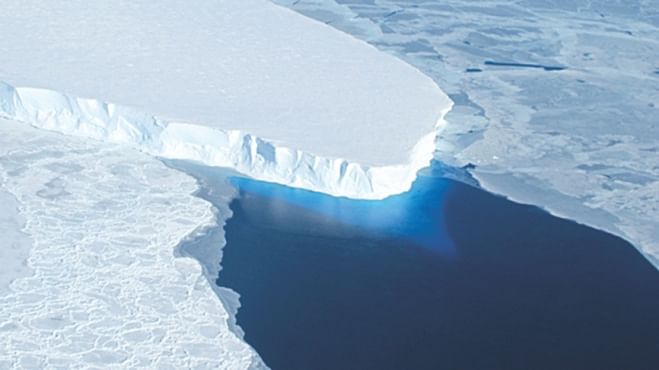Ice collapse goes unstoppable

The huge West Antarctic ice sheet is starting a glacially slow collapse in an unstoppable way, two new studies show.
Alarmed scientists say that means even more sea level rise than they figured.
The worrisome outcomes won't be seen soon. Scientists are talking hundreds of years, but over that time the melt that has started could eventually add 4 to 12 feet to current sea levels.
A Nasa study looking at 40 years of ground, airplane and satellite data of what researchers call 'the weak underbelly of West Antarctica' shows the melt is happening faster than scientists had predicted, crossing a critical threshold that has begun a domino-like process.
"It does seem to be happening quickly," said University of Washington glaciologist Ian Joughin, lead author of one study. "We really are witnessing the beginning stages."
It's likely because of man-made global warming and the ozone hole which have changed the Antarctic winds and warmed the water that eats away at the feet of the ice, researchers said at a Nasa news conference Monday.
"The system is in sort of a chain reaction that is unstoppable," said Nasa glaciologist Eric Rignot, chief author of the study in the journal Geophysical Research Letters.
Curbing emissions from fossil fuels to slow climate change will probably not halt the melting but it could slow the speed of the problem, Rignot said.
The Rignot study sees eventually 4 feet of sea level rise from the melt. But it could trigger neighbouring ice sheet loss that could mean a total of 10 to 12 feet of sea level rise, the study in Science said, and Rignot agreed.

 For all latest news, follow The Daily Star's Google News channel.
For all latest news, follow The Daily Star's Google News channel. 




Comments